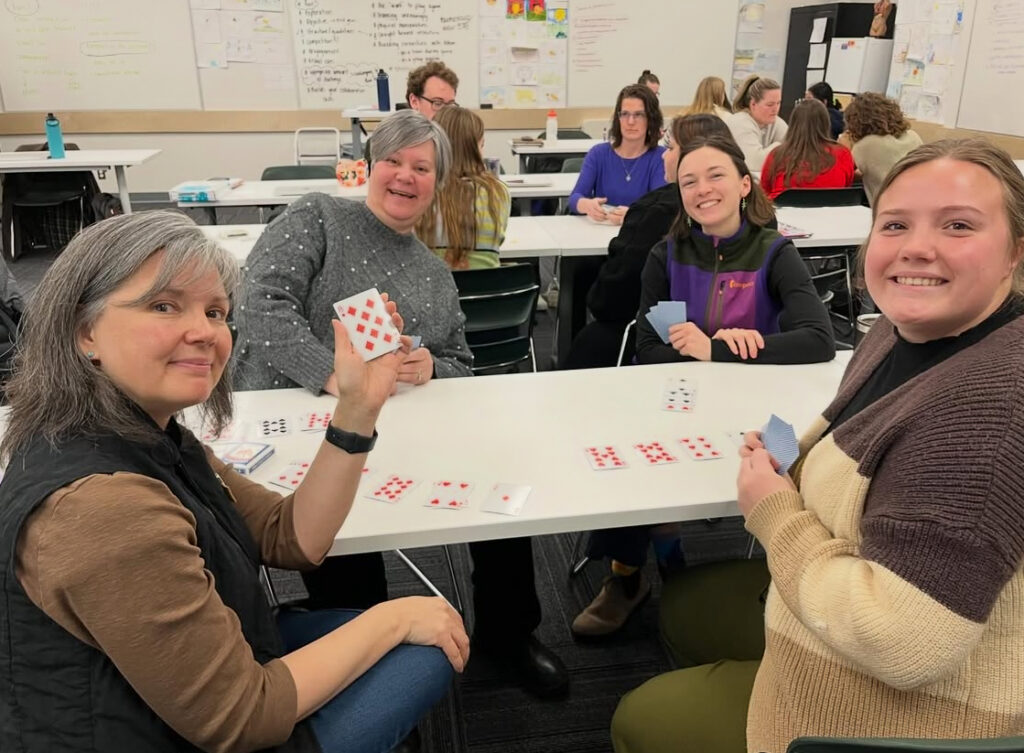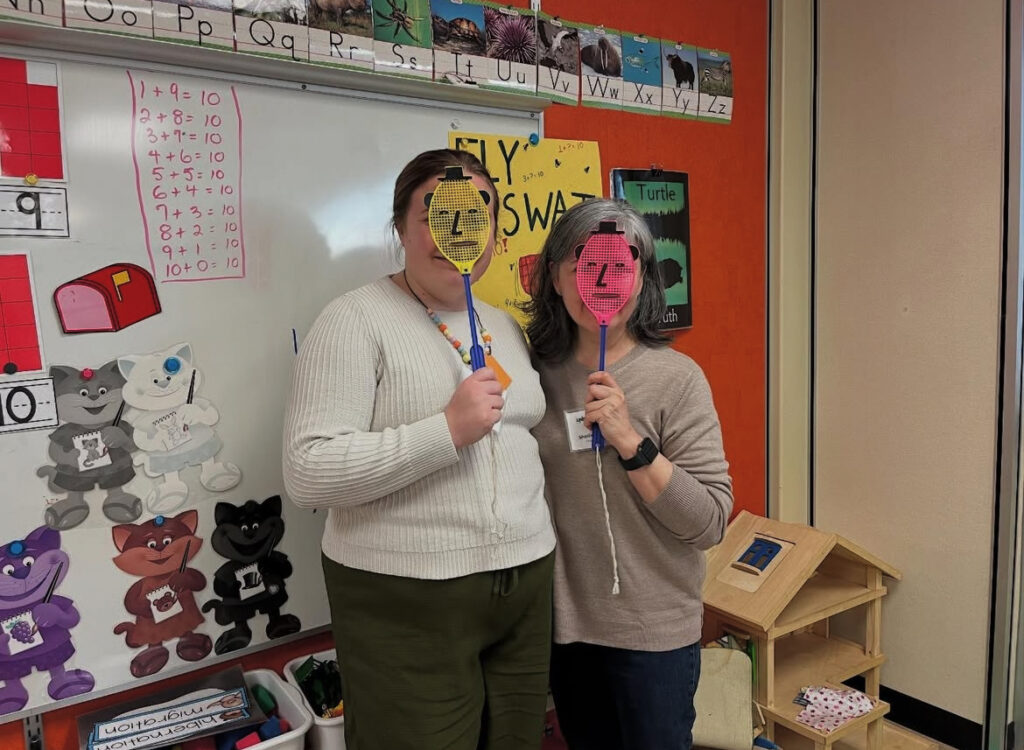Educators value the involvement and support of parents, guardians, families, and communities in schools.

Numeracy night at Edgewood Elementary was a powerful experience. It was impactful learning from peers, educators in the field, and families. Numeracy night brought many different perspectives of how math can be implemented both inside and outside the classroom. As a teacher, standard 4, communicating with parents and families is extremely important because parents are the most important role models in kids’ lives. It is beneficial as someone who is going to be a trained educator to provide families with resources, and activities that they can take home and use to engage their children in further learning. Having the experience to give families opportunities to help their children thrive in numeracy was fun and exciting.

I enjoyed spending time teaching students our math game and hanging out with my partner Sheila! Our game, Fly Swatter, was a positive learning experience for most of the families who played. I felt that our game was fun and could be adapted to fit many different grade levels. It is also a game that is accessible to any family who owns a deck of cards. Simplicity and adaptability are important aspects of a math game because not every family has access to fancy, complex manipulatives. As a new teacher who won’t have a bunch of my own materials going into the career at first, it is also a relief to have learned that many games do not need many tools to play and teach.
Going forward into numeracy I have learned that games are a great way to teach different aspects of math. Games make math fun for kids and engrain memorization. Our game fly swatter had kids engaged and learning different math facts. We even had some 4-year-old future kindergarteners play who did not know how to make 10 at all. This was a cool teaching experience as you can see exactly where kids are in their learning. We also got to practice teaching young kids how to make 10 and help the younger ones with their addition.